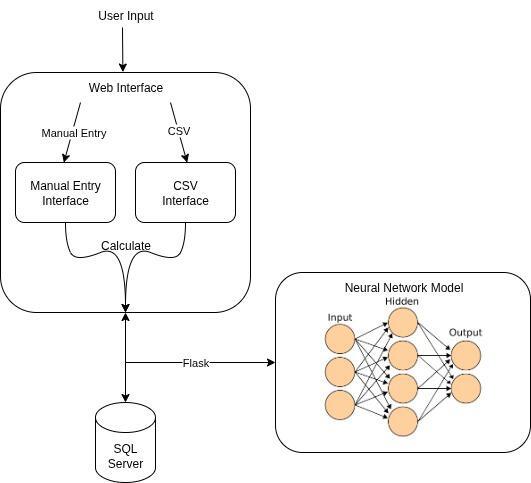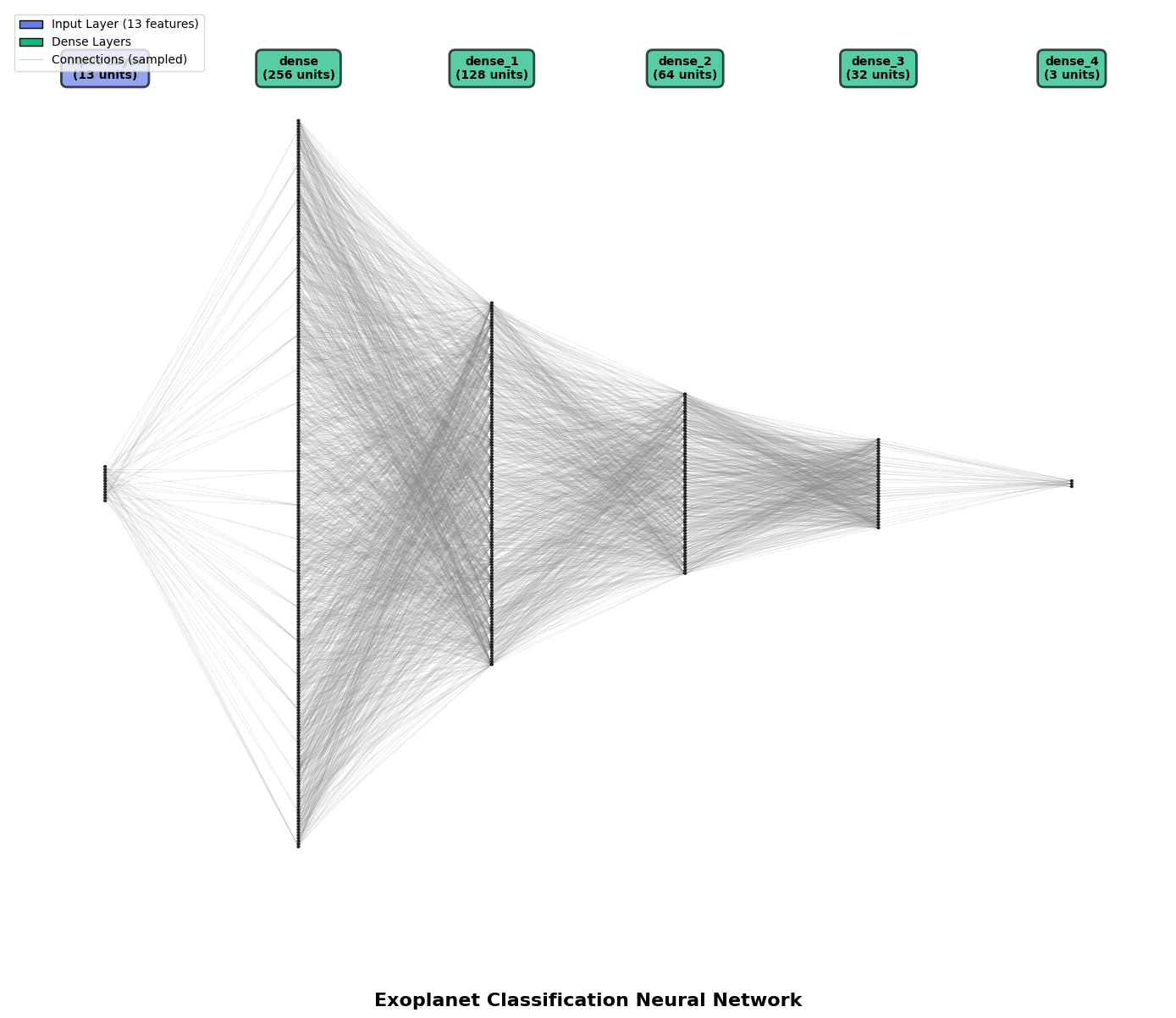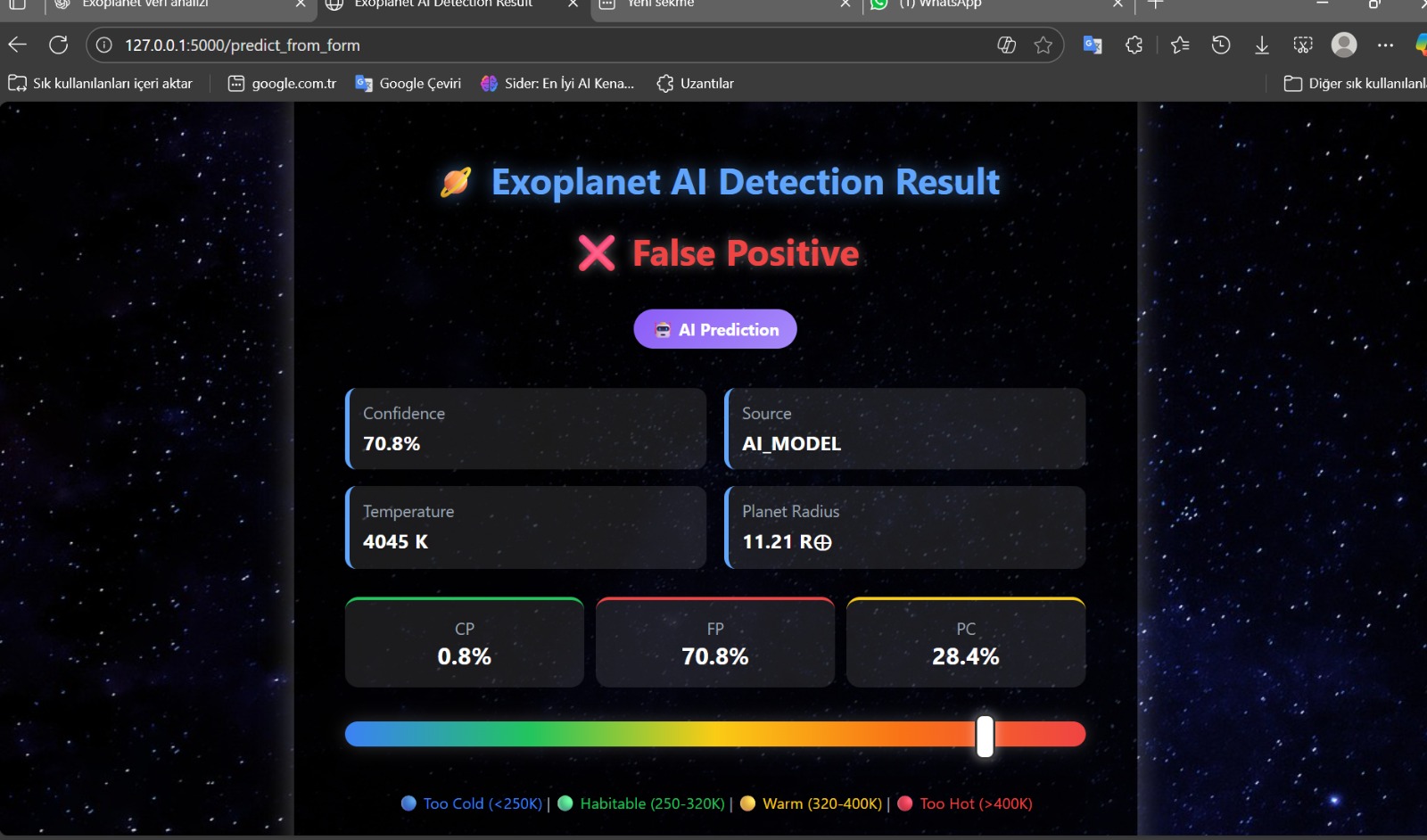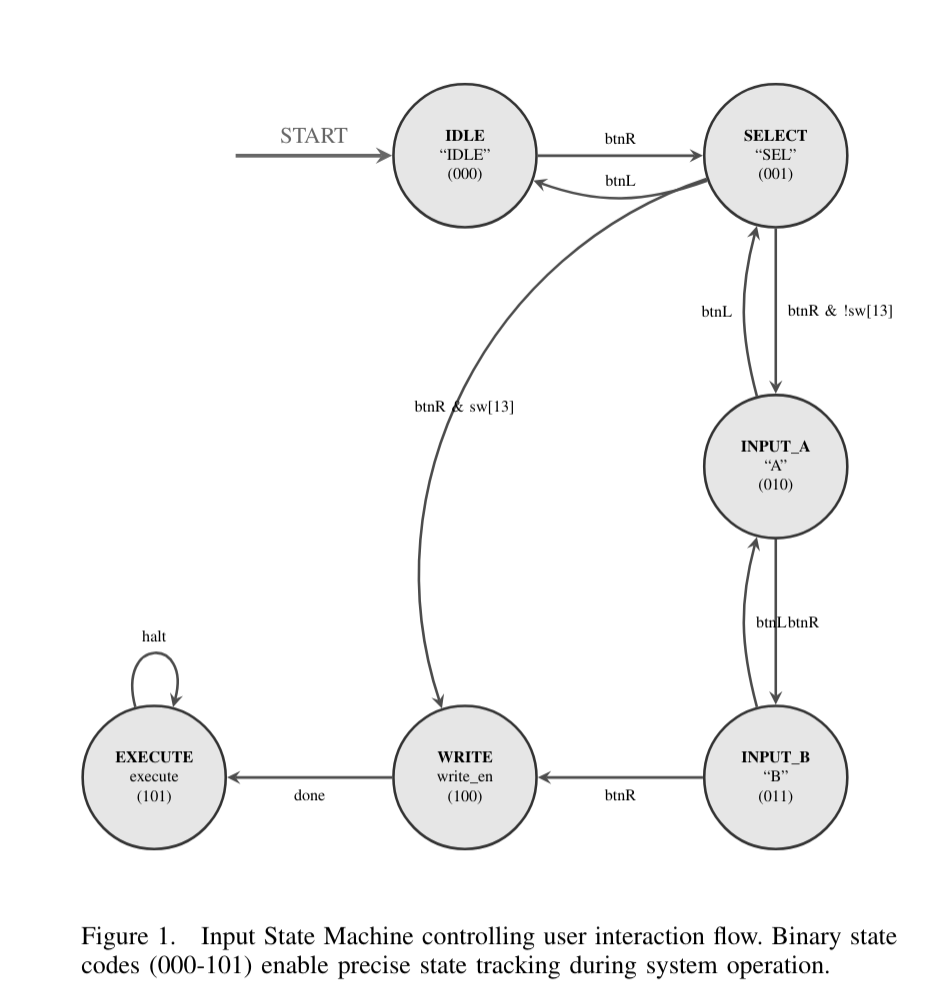AI-Based Exoplanet Classification System
October 5-7, 2025We developed a neural network model for exoplanet classification system that automatically analyzes NASA TESS mission data to identify and categorize celestial objects as Confirmed Planets (CP), Planet Candidates (PC), or False Positives (FP). Our system addresses the challenge of processing the massive backlog of TESS observations that would take astronomers days to review manually.
Using a deep neural network trained on over 5,000 observations with 13 key astrophysical parameters, we achieve an accuracy of 78% or higher in classification. The system features a two-tier approach: first checking NASA's database using fuzzy matching (2% error margin) for known planets, then deploying our AI model for new discoveries. Users interact through an intuitive web interface where they can input individual observations or upload batch CSV files, receiving instant predictions with confidence scores, temperature analysis, and habitability assessments.
Resources: GitHub Presentation






